Disciplines
- Chemistry of Hydrocarbon Fuels
- Хімія технологічних розчинів
- Chemical and metrological assurance in the production of hydrocarbons
- Petrophysics oil and gas reservoirs and confining beds
- Прогнозування, пошук та розвідка родовищ вуглеводнів
- Розробка та експлуатація нафтових та газових родовищ
- Environmental audit and expert review
- Norms of anthropogenic load on environment
- Environmental monitoring
Chemistry of Hydrocarbon Fuels
The course ensures formation of the general knowledge concerning the chemical nature of the hydrocarbon fuels – petroleum, natural gas and products of their industrial processing. The peculiarities of molecular structure, chemical reactivity and physico-chemical properties of various components of hydrocarbon raw materials – organic compounds of petroleum and natural gas are reviewed, together with the science background of their industrial treatment and the main consumer parameters of the most important petrochemicals. The important parts of this course are the methods of determination of the raw material composition, quality control, modern petrochemical analysis, laboratory equipment and devices used in the domain of the hydrocarbon fuels science and industry. The laboratory practice, as part of the course, provides the general science background and practical skills in determining the composition, conformity with governmental standards for hydrocarbon raw materials and products of their chemical treatment.
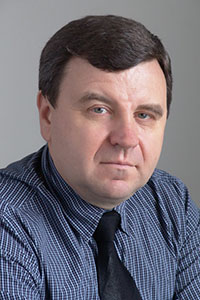 |
Andrey O. Doroshenko, Ph.D., Dr.Sci. Professor of the Department of Organic Chemistry, Faculty of Chemistry at V. N. Karazin Kharkiv National University, has an extensive experience in teaching a large variety of general and special disciplines with focus on organic, bioorganic and physical organic chemistry. Main research interests include organic aromatic and heterocyclic luminescent compounds, fluorescence with the abnormally high Stokes shifts, reactivity of the organic molecules in their ground and electronically excited states, proton phototransfer reaction, fluorescent probes and sensors. Author of more than 100 research papers indexed in the SCOPUS database. |
 |
Denis A. Svechkarev, Ph.D. Senior Research Scientist at the Institute for Chemistry, Associate Professor of the Department of Organic Chemistry, Faculty of Chemistry at V. N. Karazin Kharkiv National University. Apart from teaching a few chemistry disciplines, works on curricular development and implementation of innovative approaches into the educational process, as well as has extensive experience in popularization of natural sciences. The research is mostly focused on the design and synthesis of organic luminophores exhibiting multi-band fluorescence, proton transfer reaction, fluorescence-based sensors and probes, nonlinear optical methods of investigation of the ultrafast excited-state dynamics of organic molecules. |
Хімія технологічних розчинів
Chemical and metrological assurance in the production of hydrocarbons
The purpose of the course — characterization of the main chemical analysis methods used for quality control of oil and natural gas, environmental monitoring, as well as pay attention to questions of sampling and sample preparation, and general issues related to the measurement, processing and interpreting the results of chemical analysis. The directly extraction of hydrocarbons from the depths is only part of the work. Chemical composition of oil and gas should be controlled according to the technical conditions as well as it is necessary to carry out the analysis of water, air and soil near the places of hydrocarbon production for timely detection of environmental pollutants. For these tasks several methods are useful: gas chromatography, spectrophotometry, atomic spectroscopy, titration, potentiometry and coulometry. Within the practical training session students will learn the basic principles that could be used to perform analysis using any method.
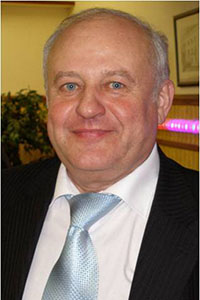 |
Oleg I. Yurchenko, PhD, Dr. Sci Professor, Head of department of chemical metrology, Deputy Dean for Tuition organization. Has award «High achiever of Ukraine education», member of the Academy of Sciences of Higher Education of Ukraine. Author of textbooks, tutorials, study guides on discipline «Analytical chemistry», the author more than 180 papers. Research interests. Metrological assurance of spectral atomic methods of analysis using surface-active substances and diketonates as standards of composition. Investigation of the metrological characteristics of atomic absorption, inductively coupled plasma atomic emission spectroscopy, X-ray fluorescence and emission spectroscopy of metal content determination in oil products, water, the working area of industrial enterprises, food, raw materials, reference materials and non-ferrous metals, alloys and other multicomponent systems. |
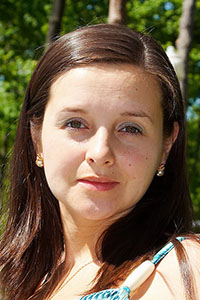 |
Nataliya O. Nikitina, PhD Co-author of more than 20 articles, monograph, 7 guides. Supervisor of qualification works of masters and specialists students. Research interests - test-analysis: development of new test-systems for environmental screening; estimation of metrological characteristics of techniques with visual indication. Investigate equilibrium of complexes formation, stability, and composition of complex in homogenous and heterogeneous medium. Synthesis of sorbents for solid phase extraction, anodic stripping voltammetry, gel electrophoresis. |
Petrophysics oil and gas reservoirs and confining beds
Oil and gas, as opposed to solid minerals are movable type of minerals. Their movement in porous rocks depends on the physical properties of reservoir rock. Quantitative parameters reservoirs and confining beds are the basis for determination of the optimal mode of mining, evaluation of hydrocarbon reserves, the definition of enhanced oil recovery methods, assessment of environmental risks that may arise while mining. The aim of the course is to develop knowledge about the physical properties of rocks oil and gas occurrence, theoretical and practical aspects of petrophysical studies of reservoirs and confining beds, the physical basis of increase of oil and gas extraction rate. Mandatory component of the discipline are laboratory classes, which provides skills of practical techniques methods for determining important characteristics of reservoir rocks and how to calculate and build petrophysical data dependency based on industrial and geophysical studies well and core.
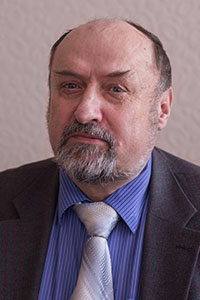 |
Illya M. Fik, PhD, Dr. Sci. Professor, member of the Ukrainian Oil and Gas Academy, laureate of the State Prize of Ukraine in Science and Technology. Head of Department development of oil, gas and condensate NTU "KPI", Heads the department of mineralogy, petrography and mineral of V. N. Karazin Kharkiv National University. Scientific and industrial achievements concerning the calculation of gas reserves, development of petrophysical model residual gas layer saturation, selection of the extraction systems for the condensate fields in Ukraine, development of new systems for increasing extraction rate of hydrocarbons from the reservoir, stepped cycling process etc. In scientific heritage has over 400 papers. |
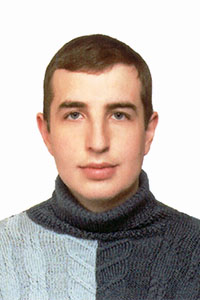 |
Stanislav I. Gorelik Master of Science, senior lecturer of the department of mineralogy, petrography and minerals at V. N. Karazin Kharkiv National University. Research interests include study of the geological structure and prediction of oil and gas fields by remote aerospace research. Among the scientific achievements - development of methods of construction of zones geomodels for possible flooding regions using aerospace and contact measurement. In 2014 passed preliminary defense of PhD thesis. |
Прогнозування, пошук та розвідка родовищ вуглеводнів
Development and exploitation of oil and gas deposits
Extraction of oil and gas process is determined by three components: drilling technology, geological search, intensification of wells work and underground hydraulic (hydrogasdynamics in layers and networks). Development of modern deposits should take into account the complex effect and theoretical capabilities of these components. This discipline delivers a comprehensive picture of the main aspects of the development and operation of oil and gas fields and related processes: basic processes of development of oil and gas, basic technologies and systems to maintain reservoir pressure, increase the extraction rate from layers, technologies and methods of operation, research, wells work intensification. Reveals the basic theory of reservoir fluid inflow to the bottom of the well, lifting multiphase flows in the wellbore. Highlights problems of collection and preparing of oil, gas and water on places of extraction. Particularly relevant themes discipline is the selection of optimal methods for intensification specific fields, additional exploration and additional extraction methods for particular fields, research and summarize the best geological and industrial experience.
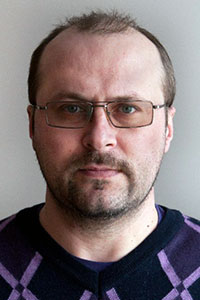 |
Mychaylo I. Fik, PhD Corresponding Member of the Ukrainian Oil and Gas Academy, certified designer of oil and gas systems and structures. Associate professor of the department of mineralogy, petrography and minerals at V. N. Karazin Kharkiv National University. Previous position - engineer in the management of gas pipelines "Kharkivtransgas" (1995 to 2010), where he was preparing his first scientific papers, patents, was involved in scientific research. Since 2011 - Deputy Head of the Department of Scientific and project works in LLC "Karpatyhaz." Author of more than 40 scientific papers and 2 textbooks. |
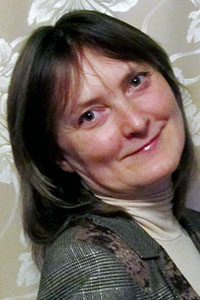 |
Olena I. Hripko Senior lecturer of the department of mineralogy, petrography and minerals at V. N. Karazin Kharkiv National University. Graduated from Kharkiv State University, "geography". In 1990-1991, held training courses for specialists in ecology at M. V. Lomonosov Moscow State University with the qualification of "environmentalist". From 1989 to 2011 worked at the Department of Geography and Environment Monitoring. Author of more than 20 scientific publications. Teaches discipline "Ecology", "Basic scientific research". |
Environmental audit and expert review
The course «Environmental audit and expert review» is a part of the Master program «Ecogeochemistry of Oil and Gas». The aim of the course «Environmental audit and expert review» is to form knowledge on conceptual basics and building of capacities and practical competencies for performing environmental audit and expert review. In the framework of the course “Environmental audit and expert review” students will study special aspects of use of environmental audit and expert review as tools for control within the environmental decision-making process and governance as well as environmental management. During the study of the course, students will receive information on the content, tasks and rules for carrying out of environmental audit and expert review in Ukraine, information on the key authorities and management bodies in the domain on environmental audit and expert review. Special attention is given to practical aspects of organization and arrangements of environmental expert review and audit in various industries/companies and territories, in particular, on those, related with oil and gas field exploitation.
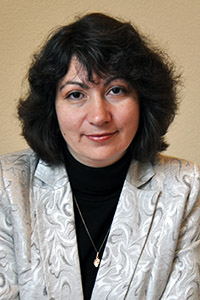 |
Ganna V. Titenko, PhD Dean of the Faculty of Ecology, V. N. Karazin Kharkiv National University. Main scientific interest are environmental expert review, environmental management, environmental soil science. During last 5 years has been participating in implementation of 5 international projects (including two Tempus projects). Gives lectures on the following courses: «Environmental expert review», «Soil science», «Geochemistry of environment». У науковому доробку має понад 100 публікацій. |
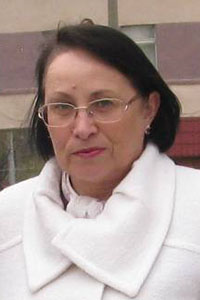 |
Natalia B. Kravchenko Senior lecturer of the Department of Ecology and Neo-Ecology at V. N. Karazin Kharkiv National University, Head of Educational Methodological Commission of the School of Ecology. During several years was working as a lecturer, senior lecturer on the Department of Accounting and Audit, and a Head of Methodological Unit at Kharkiv Institute of Management. Main scientific interest are environmental economics, environmental management, environmental accounting and auditing. |
Norms of anthropogenic load on environment
Course «Norms of anthropogenic load on environment» provides student competencies allowing to identify, control and observe norms on environment quality, maximum allowable loads as well as other norms in the domain of nature use that will ensure protection of nature and provision of environmental safety. In the framework of the course students will study approved procedures on regulation of industries and companies activity in the domain of environmental protection and balanced nature use, requirements, rules and terms for obtaining permissions on emissions, discharges, waste generation / utilization and land use, rules for performing control of compliance with approved requirements: norms for maximum allowable emissions/discharges of pollutants, measures for limitation of negative impact made by economic activities on various components for the environment and measures for prevention of negative impact on a human health, rules for regulation of emissions in case on unfavorable meteorological conditions, etc. The goal of the course is to form theoretical knowledge and practical skills, necessary for future work in environmental departments in industries that responsible for environmental safety of the enterprise, and companies dealing with development of permission and reporting documentations.
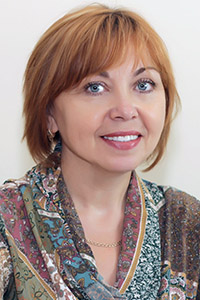 |
Nadia V. Maksymenko, PhD Head of Department of Environmental Monitoring and Management, V.N. Karazin Kharkiv National University. Main scientific interests are landscape-environmental planning, organization of management activity for environmental protection and research of regional environmental problems. Має численні відзнаки за високі досягнення в науковій та науково-педагогічній діяльності. Author or co-author of more than 200 scientific publication, 5 text-books and more than 24 educational and educational-methodological manuals. |
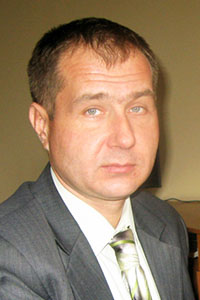 |
Eduard O. Kochanov, PhD Assoc Prof of the Department of Environmental Monitoring and Management at V.N. Karazin Kharkiv National University. Main scientific interests are environmental safety of production processes and territories having great anthropogenic pressure, organization of environmental safety management and research of regional environmental problems. Author of more than 80 scientific and та educational-methodological publications, textbooks and manuals. |
Environmental monitoring
Disclosed goal, objectives and principles of the state system of environmental monitoring in Ukraine, current state and prospects of its development. The course considers hierarchical levels of classification and monitoring system by type of operation, analyze the basic laws and regulations of organization and monitoring. The following issues are studied in details: methodological, metrological, technical, programmatic, organizational and scientific support of the system of monitoring; basic methods of physical, chemical, biological and remote research, environmental issues of oil and gas industry and environmental risks and safety of oil and gas facilities, the effect of oil and gas facilities on the atmosphere, aquatic environment, soil, flora and fauna. A lot of attention paid to the issue of environmental support operating oil and gas facilities.
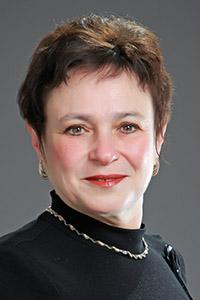 |
Alla N. Nekos, PhD, Dr. Sci. |
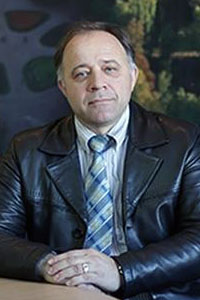 |
Oleksiy M. Kraynyukov, PhD, Dr. Sci. Professor of the Department of Ecological Safety and Environmental Education at V. N. Karazin Kharkiv National University. Head of Education-and-Research Laboratory on Ecological-Toxicological Researches, School of Ecology. The Laboratory has a license issued by the State Committee of Ukraine for Technical Regulation and Consumer Policy for carrying out of measurements by using bio-testing method (including for aims of metrological supervision). Scientific interest concentrated in fields of environmental monitoring and eco-toxicology. The author or co-author of more than 100 scientific publications, including 5 textbooks and manuals. |



